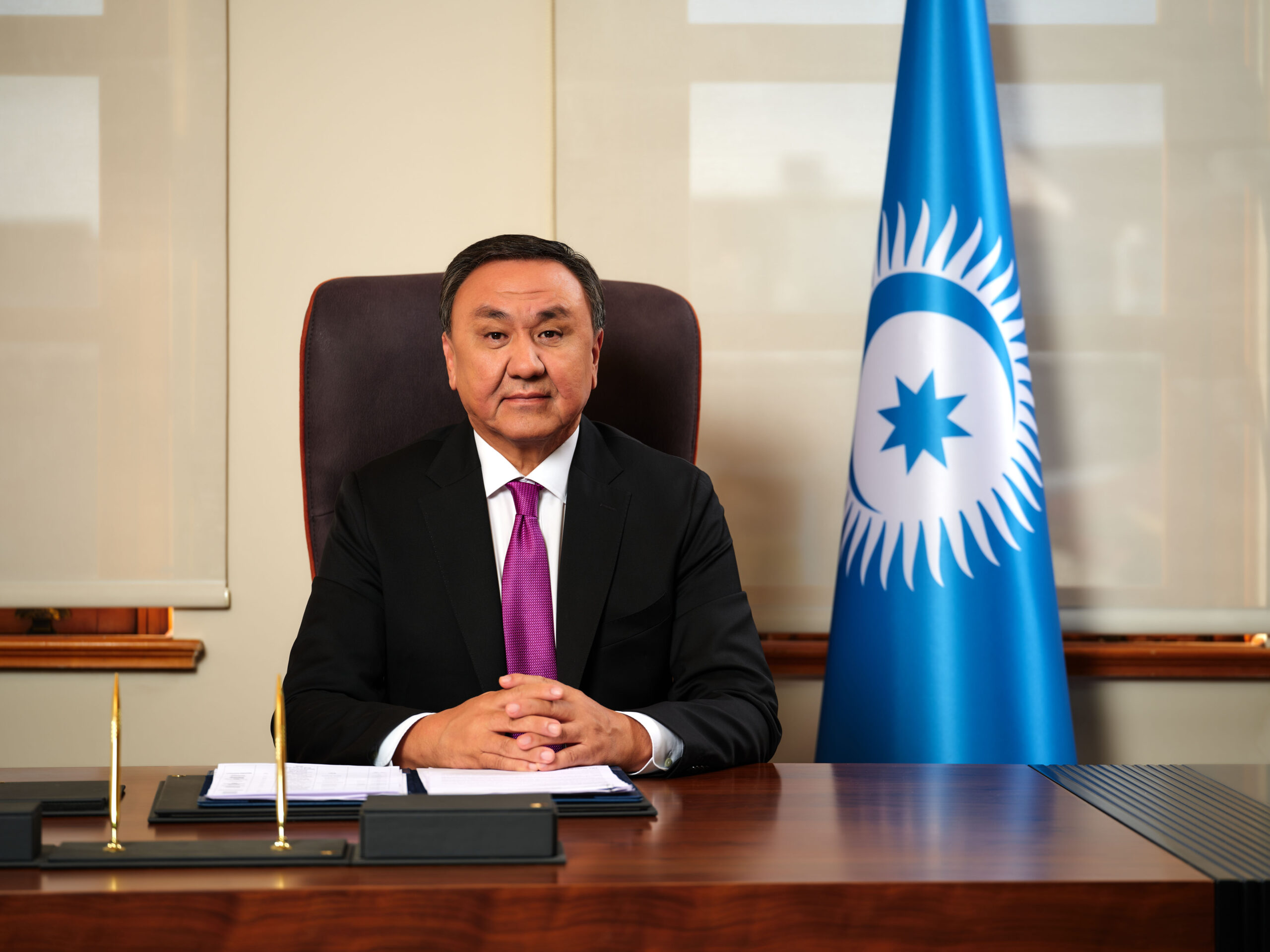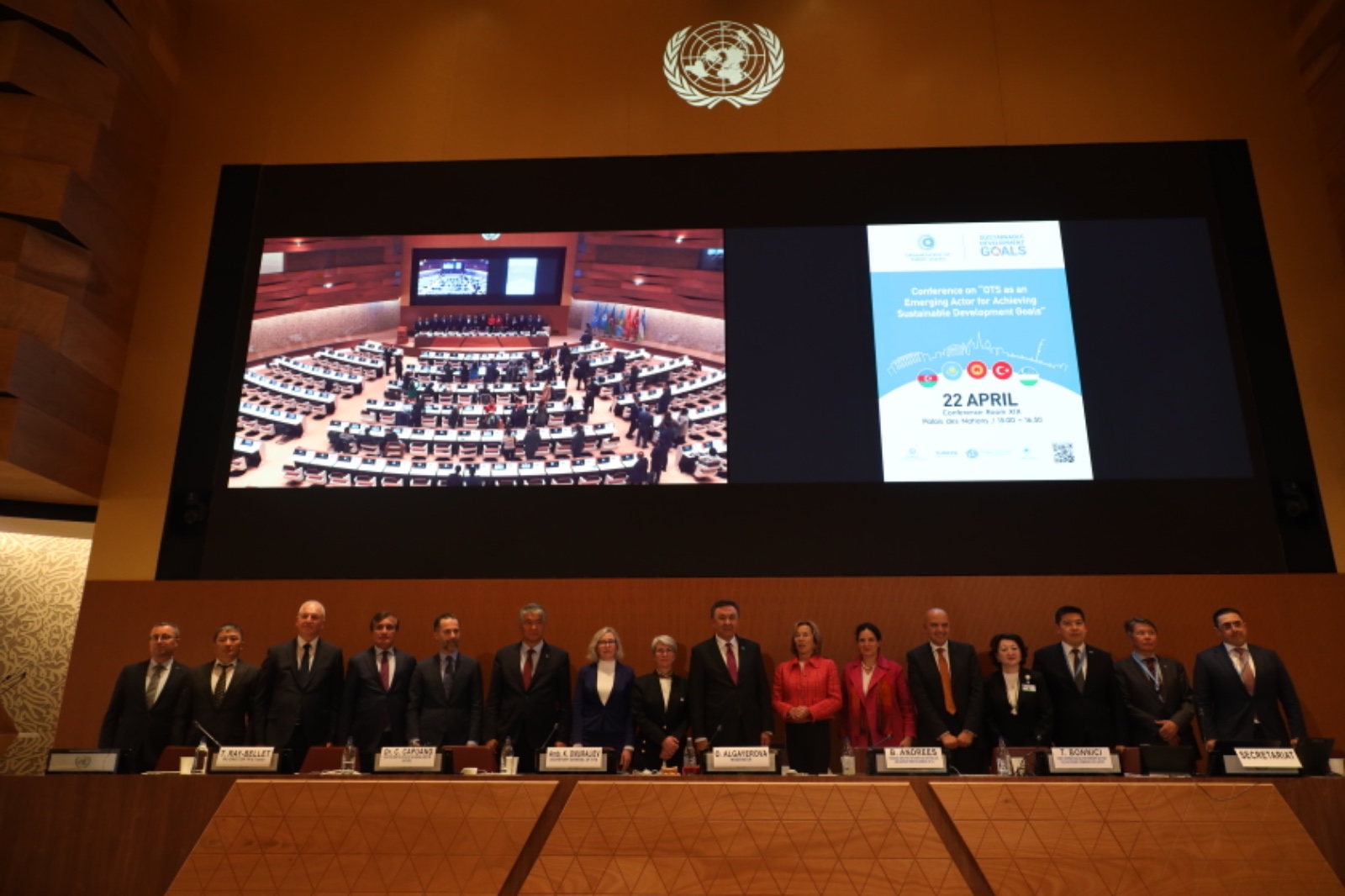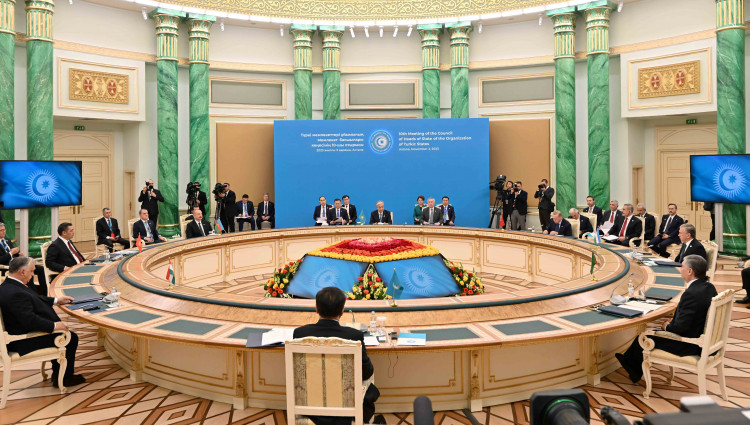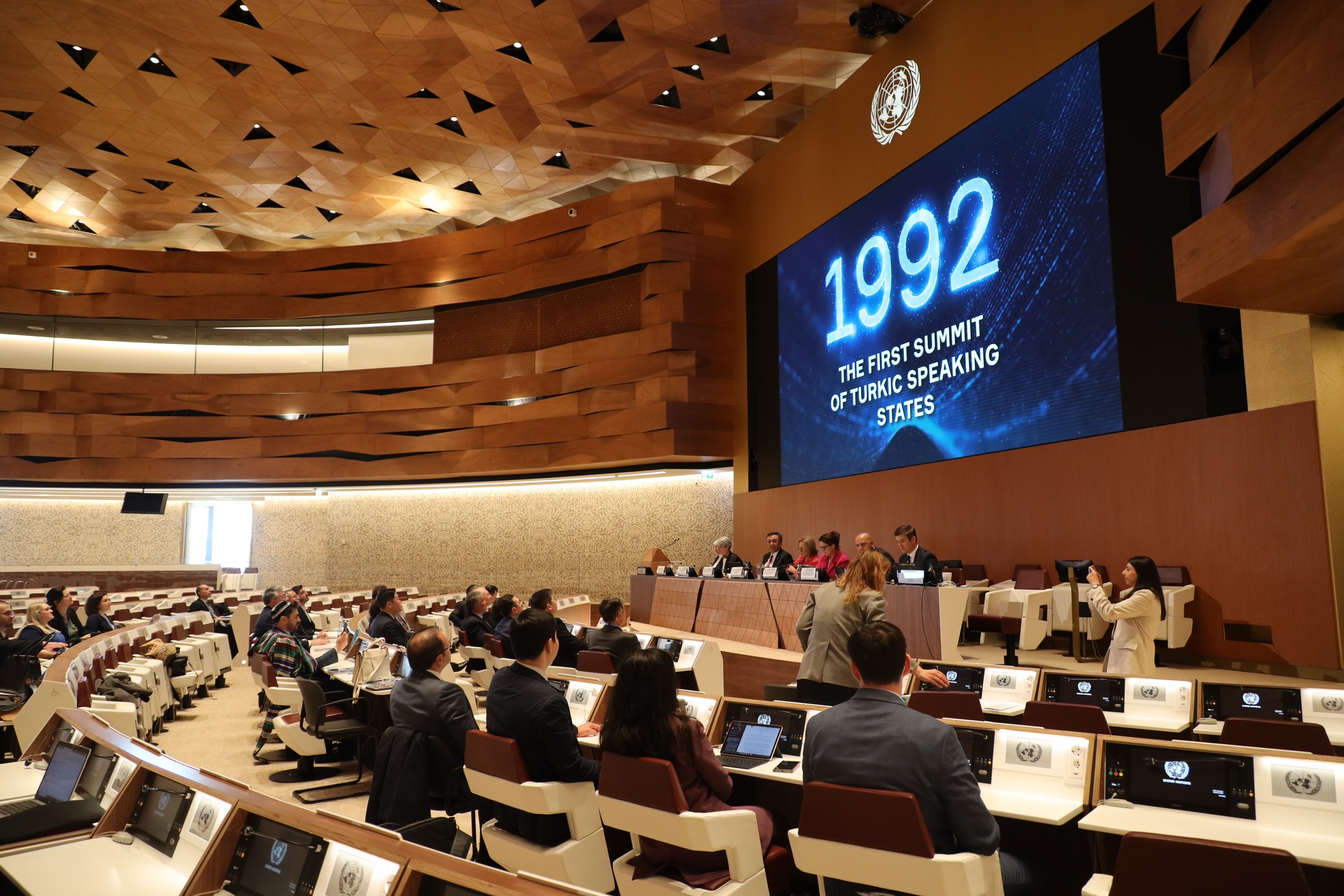ASTANA—Kubanychbek Omuraliev, the Secretary General of the Organization of Turkic States (OTS), recently spoke with The Astana Times about the organization’s activities, development and plans.

Kubanychbek Omuraliev, the Secretary General of the Organization of Turkic States (OTS).
Could you share the priorities of the OTS?
A common language, culture, tradition and history unite our fraternal countries. The leaders of Turkic-speaking states have been developing Turkic cooperation since the very beginning of the independence of the Turkic States in the 1990s. In 2009, this Turkic cooperation was institutionalized. Our organization’s key priorities are reflected in the Nakhchivan Agreement, signed by the heads of our states. The priorities include strengthening confidence among the parties, maintaining peace in the region and beyond, promoting common positions on foreign policy issues, coordinating actions to combat international terrorism, separatism, extremism and trans-border crimes, promoting effective regional and bilateral cooperation in all areas of common interest, creating favorable conditions for trade and investment aiming for comprehensive and balanced economic growth, and social and cultural development.
It’s been 15 years since OTS was established. Has the organization faced any challenges, and how did it manage to overcome them? What would you name as the key achievements of OTS?
The OTS, initially known as the Cooperation Council of Turkic Speaking States (Turkic Council), was established in 2009 as an intergovernmental organization. Since 2011, we have held annual summits under specific themes, where the heads of state of the member states evaluate the past period and set goals for the upcoming year.

Turkic week in Geneva. Photo credit: Organization of Turkic States.
Our organization does not limit itself to member states. It cooperates with neighboring states to ensure regional peace and stability, particularly in transport, customs and tourism. The scope of cooperation within the framework of the OTS has expanded to encompass 30 different areas.
With a population exceeding 160 million and the seventh largest area in the world, the Turkic States are the 14th largest global economy in terms of GDP, which amounted to $1.5 trillion in 2022. Over the last 10 years, our countries have significantly increased their trade relations. The total trade turnover of the Turkic States with the world in 2023 reached approximately $1.2 trillion, and the trade turnover between the organization’s members increased to $42.3 billion.
Institutionally, the organization has continued to improve. In 2021, it was renamed as the OTS, a proposal made by Kazakhstan.
We have signed several agreements to strengthen our legal basis, including the Agreement on the Establishment of Simplified Customs Corridor and the International Combined Freight Transport Agreement. With Kazakhstan’s support, we are also working on introducing Permanent Representatives to the OTS.
Kazakhstan is one of the founding members of the OTS. What role does it play in the current development of the Turkic Unity?
Kazakhstan plays a major and proactive role in the development of Turkic Unity, not only as a founding member of the OTS but also as an initiator of several other key Turkic cooperation organizations, such as International Organization of Turkic Culture (TURKSOY), the Turkic Academy, the Turkic Culture and Heritage Foundation (TCHF), the Turkic Investment Fund (TIF), the Parliamentary Assembly of Turkic States (TURKPA) and the Union of Turkic Chamber of Commerce and Industry (TCCI). Kazakhstan’s leadership and strategic initiatives have significantly contributed to the strengthening and growth of the OTS.

The 10th Summit of the Organization of Turkic States was held in Astana on Nov 3, 2023. Photo credit Akorda.
One notable contribution from Kazakhstan is the preparation of the Turkic World Vision—2040, a comprehensive strategic document outlining long-term goals and collaborative efforts for the Turkic world.
Under the motto TURKTIME, the OTS Secretariat collaborates closely with Kazakhstan to implement a joint calendar of actions, ensuring coordinated efforts and achieving common objectives. Kazakhstan’s role in organizing and hosting numerous events further exemplifies its dedication to fostering cooperation among Turkic nations. These events include the second Turkic Universiade, meetings of Agriculture Ministers, the Turkic Metaverse conference, the third meeting of the heads of Agencies in charge of Human Resources and the second Informal Meeting of Assistants/Advisers on Foreign Policy Issues of the Heads of States of the OTS. Additionally, Kazakhstan will host future significant events such as the fifth World Nomad Games, the eighth meeting of Youth and Sports Ministers, the third meeting of Secretaries of National Security Councils of the OTS and the first meeting of Justice Ministers of the OTS.
President Kassym-Jomart Tokayev proposed several projects to enhance cooperation and address common challenges among Turkic countries. These proposals include establishing the Council of Turkic Central Banks, creating a Common Turkic Patent Organization, developing the Turkic Large language model using AI, and collaborative efforts on drought prevention and the Aral Sea’s environmental issues.
Key outcomes of the recent summit in Astana, which Kazakhstan played a central role in organizing, include adopting the Astana Act, the Declaration of the 10th Jubilee Summit, and crucial decisions on establishing financial centers, new flags, and permanent representatives. The summit also led to agreements on cooperation in metrology and the signing of the Joint Action Plan on the 2023/27 Transport Connectivity Program, further demonstrating Kazakhstan’s leadership in advancing the Turkic Unity.
The growth of Turkic cooperation has been dynamic so far. How do you see the further development of the OTS?
The OTS will continue to build on the strong foundation laid by our member states, focusing on deepening cooperation across various strategic areas. One of the key priorities will be enhancing economic integration and trade connectivity through various initiatives to create new opportunities for trade and investment within the region.

Turkic week in Geneva. Photo credit: Organization of Turkic States.
The OTS is committed to advancing cultural and educational collaboration. We will also continue to promote cultural exchanges, such as festivals, exhibitions and educational programs, especially among young people, to celebrate and preserve our shared heritage. The OTS plans to leverage digital platforms and technology to enhance cooperation in areas like cybersecurity, digital economy, and innovation, ensuring that our nations are well-prepared for the challenges of the 21st century.
Environmental sustainability and resilience will be at the forefront of our agenda. The upcoming COP29 Summit in Baku presents promising opportunities for our organization to make significant contributions in this area.
By the end of this year, we will organize the 11th meeting of the Council of Heads of State in Bishkek, the 10th meeting of Heads of Customs Administrations of the OTS, and the fourth meeting of Health Ministers of the OTS in Baku. Other significant events include meetings of Interior Ministers, Young Volunteers, Prosecutors General, Energy Ministers, Tourism Ministers, and Economy and Trade Ministers. The first meeting of Mapping Institutions will take place in Türkiye. These gatherings not only foster dialogue and collaboration but also pave the way for new initiatives and projects that strengthen our unity.
For many years, there have been discussions and research about developing a common language for Turkic countries. Are there any recent updates or ongoing efforts in this area?
One of the major milestones was the second meeting of the Turkic World Common Alphabet Commission, where representatives from the Azerbaijan National Academy of Sciences, the Turkic Academy, and scientists from across the Turkic World convened. This congress focused on the transition to a common Turkic alphabet, and an overwhelming majority supported the initiative, with 111 decisions in favor and only seven against. This move towards a unified alphabet is a crucial step in fostering linguistic unity among Turkic nations.
Additionally, at the International Conference in Bishkek, which celebrated the 950th anniversary of Diwan Lughat al-Turk, a seminal work in Turkic linguistics, the OTS Secretariat advocated for creating a Common Turkic Dictionary. This initiative aims to standardize and preserve the rich vocabulary of the Turkic languages, making it accessible to speakers across different countries.
Efforts are also underway to integrate these initiatives.
